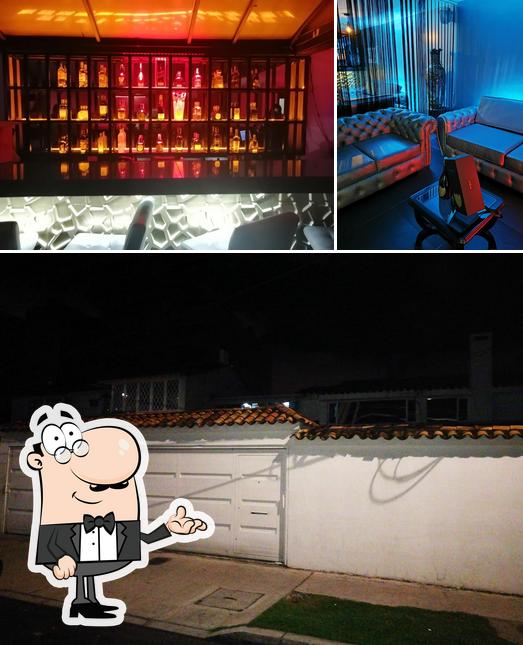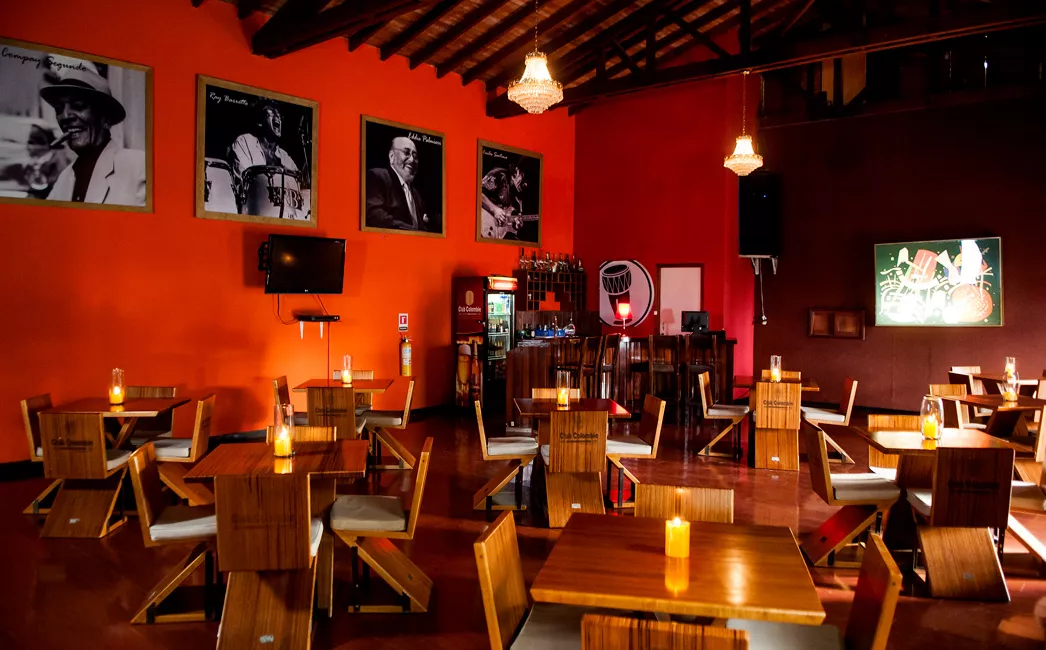Ever wondered what the ancient Greeks did to stay fresh and clean? Well, let me introduce you to the fascinating world of loutron! This isn't just about washing up; it's an entire cultural practice that dates back thousands of years. Imagine stepping into a world where cleansing was more than just a daily chore – it was a sacred ritual filled with meaning and purpose. Loutron played a huge role in ancient Greek life, and today we're diving deep into its history, significance, and even how it relates to modern times.
So, what exactly is loutron? In simple terms, it refers to the act of washing or bathing, but don't be fooled by its simplicity. This wasn't your average shower or bath. It was a ritualistic practice tied to spiritual and social customs. Think of it as a way for the Greeks to connect with their gods, maintain hygiene, and even prepare for important events like weddings or religious ceremonies.
As we explore this topic, you'll discover how loutron evolved over time, the tools and techniques used, and why it remains relevant today. Whether you're a history buff or simply curious about ancient practices, this article will give you a fresh perspective on how cleanliness was celebrated in ancient Greece.
Read also:Billy Zane Back To The Future And Beyond
Table of Contents
- What is Loutron?
- Historical Background of Loutron
- Tools and Techniques Used in Loutron
- The Religious Significance of Loutron
- Social Impact of Loutron
- Modern Connections to Loutron
- Health Benefits of Ancient Cleansing Practices
- Loutron Depicted in Ancient Art
- Famous Loutron Sites in Greece
- Conclusion
What is Loutron?
Alright, let's break it down. Loutron is basically the ancient Greek term for washing or bathing, but it goes way beyond just getting clean. This practice was deeply embedded in Greek culture, and it wasn't just about removing dirt. It was a ritual that symbolized purity, both physically and spiritually. The Greeks believed that cleanliness was next to godliness, and loutron helped them achieve that state of purity.
Think about it like this: when you take a shower today, it's mostly about hygiene, right? But back then, it was like a mini-ceremony. People would use special oils, scents, and even prayers while they washed. It was a moment to reflect, connect with the divine, and prepare themselves for whatever lay ahead.
And guess what? Loutron wasn't just for personal use. It was also used in communal settings, like public baths and sanctuaries. These places were social hubs where people gathered to relax, chat, and bond over the shared experience of cleansing. So, it wasn't just about staying clean – it was about building relationships too.
Why Was Loutron Important?
- It symbolized purity and cleanliness in both body and soul.
- It was a key part of religious rituals and ceremonies.
- It fostered social interaction and community bonding.
- It helped maintain personal hygiene and health.
Historical Background of Loutron
Now, let's rewind a bit and dive into the history of loutron. This practice didn't just pop up overnight. It evolved over centuries, influenced by cultural, religious, and social factors. Back in the day, the Greeks had a thing for cleanliness, and loutron became one of the cornerstones of their daily lives.
Archaeological evidence shows that the Greeks had sophisticated water systems and bathing facilities as early as the Mycenaean period. They built elaborate baths with hot and cold water, drainage systems, and even steam rooms. These facilities were designed not just for practical purposes but also for aesthetic and spiritual ones.
Fast forward to the Classical period, and loutron became even more elaborate. Public baths, or "thermae," became common in Greek cities. These places were more than just baths; they were centers of culture and learning. Philosophers, poets, and politicians would gather there to discuss ideas, share knowledge, and relax.
Read also:How Did Eazye Get Aids The Untold Story Of A Hiphop Legend
How Did Loutron Evolve?
- From simple washing practices to elaborate bathing rituals.
- Influenced by religious beliefs and cultural norms.
- Adapted to fit different social classes and regions.
Tools and Techniques Used in Loutron
So, how did the Greeks actually perform loutron? They had a whole arsenal of tools and techniques at their disposal. Forget about your modern showerheads and body scrubs. The Greeks had their own version of bathing essentials that were just as effective, if not more so.
One of the most common tools was the "loutra," which were large basins or tubs used for washing. These were often made from clay or stone and could hold enough water for a thorough cleanse. People would fill them with hot or cold water, depending on the season and their preference.
Another key tool was the "strigil," a small metal scraper used to remove dirt and oil from the skin. After applying olive oil to their bodies, they would use the strigil to scrape it off, taking the dirt with it. It might sound strange, but it was actually pretty effective and left the skin feeling soft and clean.
What Were the Techniques?
- Using olive oil and strigils for skin cleansing.
- Employing hot and cold water for different effects.
- Incorporating scented oils and herbs for fragrance.
The Religious Significance of Loutron
Let's talk about the spiritual side of loutron. For the Greeks, cleanliness wasn't just about looking good; it was about feeling pure and connected to the divine. Many religious ceremonies required participants to undergo loutron as a form of purification. It was believed that washing away physical impurities would also cleanse the soul, making one worthy of interacting with the gods.
For example, before entering a temple or participating in a festival, people would perform loutron to ensure they were spiritually clean. This act was seen as a sign of respect and devotion to the gods. It was also believed that loutron could help ward off evil spirits and protect against misfortune.
Some rituals even involved special prayers or offerings while bathing. Priests and priestesses would guide participants through the process, ensuring that every step was performed correctly and with the right intentions.
Which Gods Were Associated with Loutron?
- Aphrodite, goddess of beauty and love, who valued cleanliness and grace.
- Hygeia, goddess of health and cleanliness, who symbolized wellness.
- Zeus, king of the gods, who demanded purity and reverence from his worshippers.
Social Impact of Loutron
Alright, let's shift gears and talk about the social side of loutron. This practice wasn't just about personal hygiene; it was also a way for people to connect with each other. Public baths were some of the most popular social venues in ancient Greece. They were places where people from all walks of life could come together, relax, and enjoy each other's company.
Imagine walking into a bustling bathhouse filled with laughter, chatter, and the sound of water splashing. People would gather there to catch up on gossip, discuss politics, or simply unwind after a long day. It was like the ancient version of a coffee shop or social club.
Even social hierarchies were blurred in these spaces. While there were certainly differences in wealth and status, the shared experience of loutron brought people together. It was a great equalizer, allowing everyone to enjoy the benefits of cleanliness and community.
How Did Loutron Foster Community?
- Provided a space for social interaction and networking.
- Encouraged inclusivity and equality among participants.
- Offered opportunities for cultural exchange and learning.
Modern Connections to Loutron
Fast forward to today, and you might be surprised to learn that loutron still has relevance in our modern world. Sure, we don't use strigils anymore, but the concept of cleansing as a ritual remains strong. Many spa treatments and wellness practices draw inspiration from ancient Greek traditions, incorporating elements of loutron into their routines.
For example, hydrotherapy, which uses water to promote healing and relaxation, has roots in ancient Greek bathing practices. The idea of using hot and cold water to stimulate circulation and reduce stress is something the Greeks were onto centuries ago. Even aromatherapy, which involves using scented oils to enhance mood and well-being, can be traced back to the fragrant oils used during loutron.
And let's not forget the social aspect. Modern spas and wellness centers are often designed as communal spaces where people can relax, chat, and bond over shared experiences. It's like a 21st-century version of the ancient Greek bathhouse.
What Can We Learn from Loutron Today?
- Embrace the idea of cleansing as a ritual, not just a chore.
- Use natural ingredients and techniques for better results.
- Focus on both physical and mental well-being through cleansing practices.
Health Benefits of Ancient Cleansing Practices
Now, let's talk about the health benefits of loutron. The Greeks weren't just concerned with looking good; they understood the importance of staying healthy too. Their cleansing practices were designed to promote overall well-being, and many of these techniques are still valid today.
For starters, using olive oil and strigils helped remove dirt and toxins from the skin, keeping it healthy and radiant. The hot and cold water treatments improved circulation and reduced muscle tension, providing both physical and mental relief. And the use of fragrant oils and herbs had a calming effect on the mind, reducing stress and anxiety.
Plus, the communal aspect of loutron had its own set of benefits. Social interaction and relaxation were key components of mental health, and the Greeks recognized this long before modern science did. By combining physical and social elements, loutron created a holistic approach to wellness that was truly ahead of its time.
What Are the Key Health Benefits?
- Improved skin health through natural cleansing techniques.
- Enhanced circulation and muscle relaxation from hot and cold water.
- Reduced stress and anxiety through aromatherapy and social interaction.
Loutron Depicted in Ancient Art
Art is a great way to understand how loutron was perceived in ancient Greece. Many vases, sculptures, and paintings depict scenes of people engaging in cleansing rituals. These artworks not only show the tools and techniques used but also reveal the cultural and social significance of loutron.
One of the most famous examples is the "Bath of Dionysus" vase, which shows a group of figures preparing for a ritual bath. The scene is filled with details, from the strigils and oils to the flowing robes and gestures of prayer. It's a beautiful representation of how loutron was intertwined with religious and social life.
Another notable piece is the "Fountain House" fresco from Pompeii, which depicts a public bathhouse in action. You can see people of all ages and genders enjoying the facilities, chatting, and relaxing. It's a vivid snapshot of how loutron brought people together in ancient times.
What Do These Artworks Tell Us?
- They highlight the importance of loutron in daily life.
- They show the tools and techniques used in cleansing practices.
- They reveal the cultural and social significance of bathing rituals.
Famous Loutron Sites in Greece
If you're ever in Greece, there are plenty of places where you can experience the legacy of loutron firsthand. These sites offer a glimpse into the ancient world of cleansing and community, and they're definitely worth a visit.
One of the most famous sites is the Ancient Agora in Athens, where public baths were a central feature. You can still see the remains of the water systems and bathing facilities, imagining how they functioned thousands of years ago. Another must-see is the Thermae of Zea in Piraeus, which was one of the largest bathhouses


